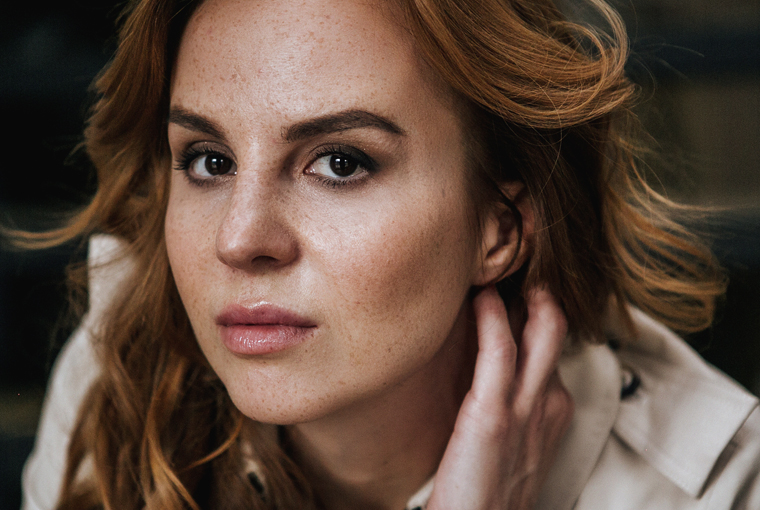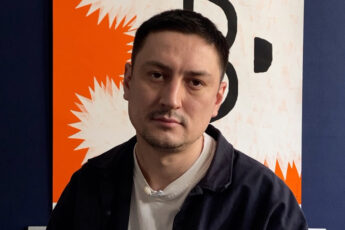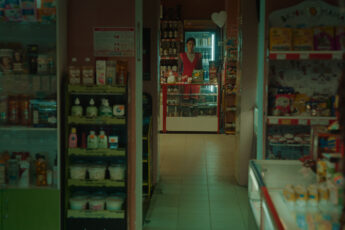
We met Yulia Trofimova during this year’s Berlinale (February 10-20), where her debut feature screened in the Generation section of the festival. Trofimova discusses how the film came into being, what its development process was like, and how it differs from other depictions of Russian youth.
Land of Sasha was adapted from a book. Were you already looking for a youth-related story or was it the book in particular that caught your imagination?
I’d been thinking about what the topic of my first feature film should be, and I thought it would be good if it was about youth and coming-of-age because it’s interesting to me and I watched a lot of movies on this theme. I was kind of looking for the material and I generally read a lot of books, so the two things happened in parallel – I was looking for material and I was reading this coming-of age-book, so it just coincided nicely. And I loved the book [by Gala Uzryutovaby]. It was a little bit different from what I’d read in Russia up to that point. It’s light in tone and it’s similar to how I feel about life, so I thought it would be nice to adapt this book.
How was the actual process of adaption?
I wrote a first draft and I started looking for a producer. I should say it was kind of hard because there is a specific atmosphere in the film, but it seems like nothing really happens. To some people, it seemed like, “Oh, it’s just another coming-of-age story. Why bother producing it?” And then I came across Katerina [Mikhaylova], who read 30 or 40 pages and said, “I want to do it.” So it was a nice combination. And then we started the process of looking for the actors, and each of them reshaped the structure, the scenes, the dialogue. Some of it even changed on set, so I kept it very, very flexible. We had a lot of discussions about what these characters are about, and we kept on changing the script until the very moment of shooting. There was a lot of improvisation, so I allowed my actors to really start scenes early, or to end them late, to surprise their partner in unexpected ways, to keep it really fresh.
How did you find your actors?
I had a very good casting director. We discussed the types we were looking for together, and then I had multiple one-on-one meetings with almost every single student studying in the theater and cinema institute here in Russia. There were many, many, many meetings because I was trying to understand how sincere the people would be with me, because that’s the most important thing in terms of what they would bring on board as personalities. Because in any case it would be the first experience of being on screen for most of them. So I wasn’t really looking for an actor per se but rather for a personality. With the girl playing Zhenya [Maryia Matsel], it was easier because she had had one role before and I’d seen her and liked her in that role. So I had her in mind from the very start, but then of course being a perfectionist I met many, many different girls, just to come to the realization that she’s still the one. And with the boy [Mark Eidelshtein] it was the complete opposite. I kept on meeting people and I couldn’t see the one, but then I met Mark, who is playing the main part, and he just said a few phrases. He said something about Salinger, and about how the character had a Salinger kind of tone, and I thought to myself, “wow, that’s exactly what I was going for.” It just clicked. We kind of read the script together and were discussing it, but I already knew he was the one.
When you were developing the film, were there any aspects that you did or didn’t want to include in relation to how youth in Russia is generally portrayed?
What I knew from the very beginning, and what was also dictated by the personalities of the characters and the location, is that it would be lighter in tone than what we typically see in Russian movies. We used to have those types of films, like 20 years ago, but not anymore. But when I observe my own kids, who are teenagers, they are not just surviving every day. They lead normal lives full of their own problems, but it’s a very different type of reality to that which we’ve gotten used to seeing in Russia. So I wanted to take a different angle on people living their lives, of young people living lives that are not about drugs, alcohol and survival, but which can still be difficult when you’re 15, 16 or 17. So that was the initial thought. And it’s interesting that – I was discussing this recently with my DoP [Egor Povolotskiy] – somehow the story then started realizing itself. I don’t know how to explain it, but the actors and characters and crew started leading it by themselves. I had taken control, but at some point I realized the film was making itself. These are the characters, these are the locations, this is the text they are reading, and some magic is happening and that’s the film.
The location in particular seems to play a crucial role in that regard, as the way the setting is depicted is very different from a lot of contemporary Russian films.
That’s what I wanted to show from the very beginning, because I come from a small town and the film is maybe also a bit nostalgic. That’s my nostalgia regarding my youth. When you remember it, everything is so good. Even things that seemed painful are really good. So I definitely felt nostalgic for life in this provincial, small town in Russia. But also the kids are not from Moscow or St. Petersburg and they really like the places where they were born, and I think they wanted this to come across – that you are really attached to the places where you are born, to the small houses and streets, which are very familiar and dear to your heart. It’s very hard to break into a new life and if someone pushes you to go to Moscow you don’t necessarily want to go. You’re comfortable where you are, and I wanted to explain why you’re comfortable, because when you see the sea and this cozy, small place full of sun you don’t necessarily want to go. That’s why we chose that location.
Did you draw on your experience with your own kids when shaping the film?
I think I based it both on my kids and on myself. I would say the mother-son relationship was drawn from my relationship with my children, because sometimes I feel that this type of relationship is very different from the one I had with my parents. There was a huge gap before, but now I think we’re all not quite mature. It’s like we ourselves are underdeveloped grown-ups, right? My kids are 14-year-old twins and sometimes they tell me how they see life and I think to myself, “Well, that’s not only a more mature way of looking at things than I used to have, but also more mature than the one I have right now.” So relations between mothers and sons, fathers and sons are closer, and that’s also what I wanted to express in my film, that the types of relationship we have are changing. The gap is becoming smaller. Kids can learn from us, but we can also learn from kids.
The mother character in the film is certainly quite atypical for this kind of genre.
We definitely haven’t had this kind of character in Russian movies. I don’t know about European films, but we can see quite a lot of these mothers right now in real life. These are women my age, mothers who had kids when they were young, and we have a lot of divorces in Russia, so often they raise their kids on their own. So this is quite a traditional family structure for my generation – young mothers with grown-up kids and no father.
She’s also quite unusual in terms of being quite flawed and struggling with her own childish side.
Yeah, I was looking for someone who would play this kind of childish mother, but it was kind of hard. Actresses in this age group would come to casting and they would force themselves into this classical mother figure, which was not what I was looking for. And I thought, “well maybe I invented this mother and she doesn’t exist”, but then Evgeniia [Gromova] came along, and again I thought, “this is the mother.”
The film ends ambiguously, but do you have any personal thoughts or wishes about what Sasha would do next?
I would love the main character to go to St. Petersburg to study. I left him walking on the road because if he would just stay with the girl then it’s just another constellation where a woman ends up managing his life for him. But if he brought it to a nice end with the girl and then he walks out it means the choice is still his and so he can do whatever he wants. He can stay in Moscow, or he can go to St. Petersburg where he’s been admitted to university, so it’s an open road for him and that’s the impression that I wanted to convey. And also the question that he asks the audience at the very end about “what are your plans for the future?” makes it a little bit ironic. The whole question is so loaded that maybe we should unload it a bit and make it less heavy. The whole thing I wanted to convey is that the decision is not decisive – he either stays or he goes, he makes a choice or he doesn’t. He makes one choice and then another one, but life is so big and the main thing is to just keep moving.
Thank you for the interview.




Leave a Comment